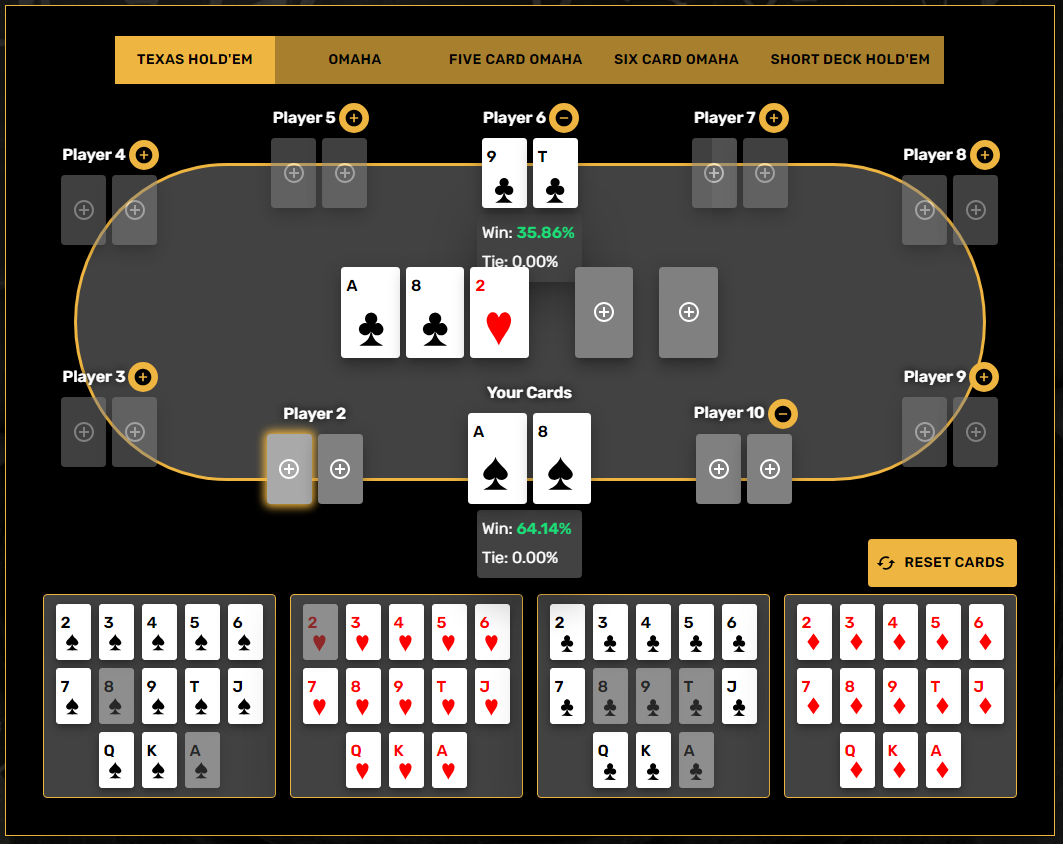For most recreational and even professional poker players, satellites are not as interesting as other poker tournaments, but this format offers a lot of value if approached correctly.
This article explains why you should try satellite tournaments and which strategy will help you achieve the best possible results. Let’s get started:
Benefits of Playing Satellite Tournaments
The good news is that most top online poker sites feature multiple satellites to live and online events, so the only question is why you should play those. Depending on your schedule, bankroll and experience, there are a few reasons why you should try satellite tournaments, so let’s dig into the advantages.
First, this tournament format is a great alternative for poker players who are still building their bankroll but want a chance to play in bigger buy-in events. Satellites allow them to win a ticket to a bigger tournament without risking a significant portion of their bankroll.
Second, you should give satellites a go because most players are not experienced in this format. You will easily beat your competition if you dedicate enough time to learning the correct strategy.
The third reason is that the strategy for satellite tournaments is not nearly as complex as for other tournament formats, and you will have an easier time mastering it.
Finally, since you will have a significant skill advantage, the variance in satellite tournaments will be much lower since players only need to make money to get the reward in the form of a ticket.
Satellite Tournament Strategy
Like with all MTT formats, the best way to approach satellites is to adjust your play to the stage of the tournament. With that said, there are three main stages:
- The early stage
- The middle stage
- The late stage
Let’s take a closer look at how to approach each stage:
Strategy For The Early Stages Of Satellite Tournaments
Your approach to the early stages of satellite tournaments should be the same as if you were playing other tournament formats, meaning that your main goal in this stage is to try and build a stack and avoid playing marginal hands.
The early stage of satellite tournaments usually has a big number of weaker players, and you should look to play pots against them, but not to the point that you are getting into 3-betting wars with the rest of the table.
Be patient, wait for good starting hands, and more often than not, weaker players will gift you their chip by overplaying mediocre hand combinations.
Strategy For The Middle Stages Of Satellite Tournaments
Depending on how big the field is in a satellite tournament, in some cases, the middle and the late stages can overlap.
Bigger field tournaments tend to have a recognizable middle structure. However, it can sometimes be difficult to distinguish the middle and late stages in smaller events.
Your most important task in the middle stage is determining how close you are to the bubble and approximately how many chips you will need to get into the money.
If you make a wrong assumption, this can lead to you playing sub-optimally. You might be trying to fight for pots when you don’t have to, or you might be playing tight when you need to fight for the pots. These are the most common mistakes players make in satellites.
With this said, if you are new to this format, your best bet is to see what the average stack in the tournament is and how many people are left. Based on this, you can determine how many chips you will need to survive and get your ticket.
Strategy For The Middle Stages Of Satellite Tournaments
The late stage of satellites is when you will have to make the biggest adjustment to your regular tournament strategy. This is also the most important tournament stage because there are no pay jumps, meaning you either win or lose.
For example, in regular tournaments, the reward for getting into the money is usually 2x the buy-in. However, in satellite tournaments, the reward for getting into the money is around 10x the buy-in. This makes each mistake much more costly.
The most important thing in this stage is to understand how many places away from the money you are and how many shorter stacks than yours are left in the tournament.
For example, unlike in regular tournaments, if you are the biggest stack in the late stage of the satellite tournaments, you can afford to play passively and not get involved in pots since winning chips is not worth as much as preserving your stack.
On the other hand, if you are one of the shortest stacks, you will need to win some chips, but try to shove into players that have similar stacks to yours as they are much less likely to call you, which gives you the opportunity to win additional chips without going to the showdown.
That’s about it – now go get your big tickets by playing satellites!









